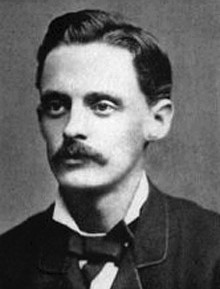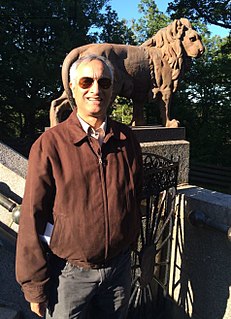A Quote by Michio Kaku
If all our common-sense notions about the universe were correct, then science would have solved the secrets of the universe thousands of years ago. The purpose of science is to peel back the layer of the appearance of the objects to reveal their underlying nature. In fact, if appearance and essence were the same thing, there would be no need for science.
Related Quotes
In the annals of science fiction, where dystopias rule the imaginative roost, Star Trek stood nearly alone in telling us that our future would be better than our past, that our common problems would be solved, that we, as a species, were fundamentally good, and that the universe would reward us for our goodness.
The initial configuration of the universe may have been chosen by God, or it may itself have been determined by the laws of science. In either case, it would seem that everything in the universe would then be determined by evolution according to the laws of science, so it is difficult to see how we can be masters of our fate.
The universe is the externisation of the soul. Wherever the life is, that bursts into appearance around it. Our science is sensual, and therefore superficial. The earth, and the heavenly bodies, physics, and chemistry, we sensually treat, as if they were self-existent; but these are the retinue of that Being we have.
If the question were, "What ought to be the next objective in science?" my answer would be the teaching of science to the young, so that when the whole population grew up there would be a far more general background of common sense, based on a knowledge of the real meaning of the scientific method of discovering truth.
How do we fill the need for technology workers, people who have computer skills and math and science skills? How do we get a more diverse science workforce? These are all issues - I would look at these documents that were from the '50s and '60s and '70s, and you'd swear they were written two weeks ago because the issues are the same.
There is no conflict between the ideal of religion and the ideal of science, but science is opposed to theological dogmas because science is founded on fact. To me, the universe is simply a great machine which never came into being and never will end. The human being is no exception to the natural order. Man, like the universe, is a machine.
Because a fact seems strange to you, you conclude that it is not one. ... All science, however, commences by being strange. Science is successive. It goes from one wonder to another. It mounts by a ladder. The science of to-day would seem extravagant to the science of a former time. Ptolemy would believe Newton mad.
If you sense a deep human need, then you go back to all the basic science. If there is some missing, then you try to do more basic science and applied science until you get it. So you make the system to fulfill that need, rather than starting the other way around, where you have something and wonder what to do with it.



































